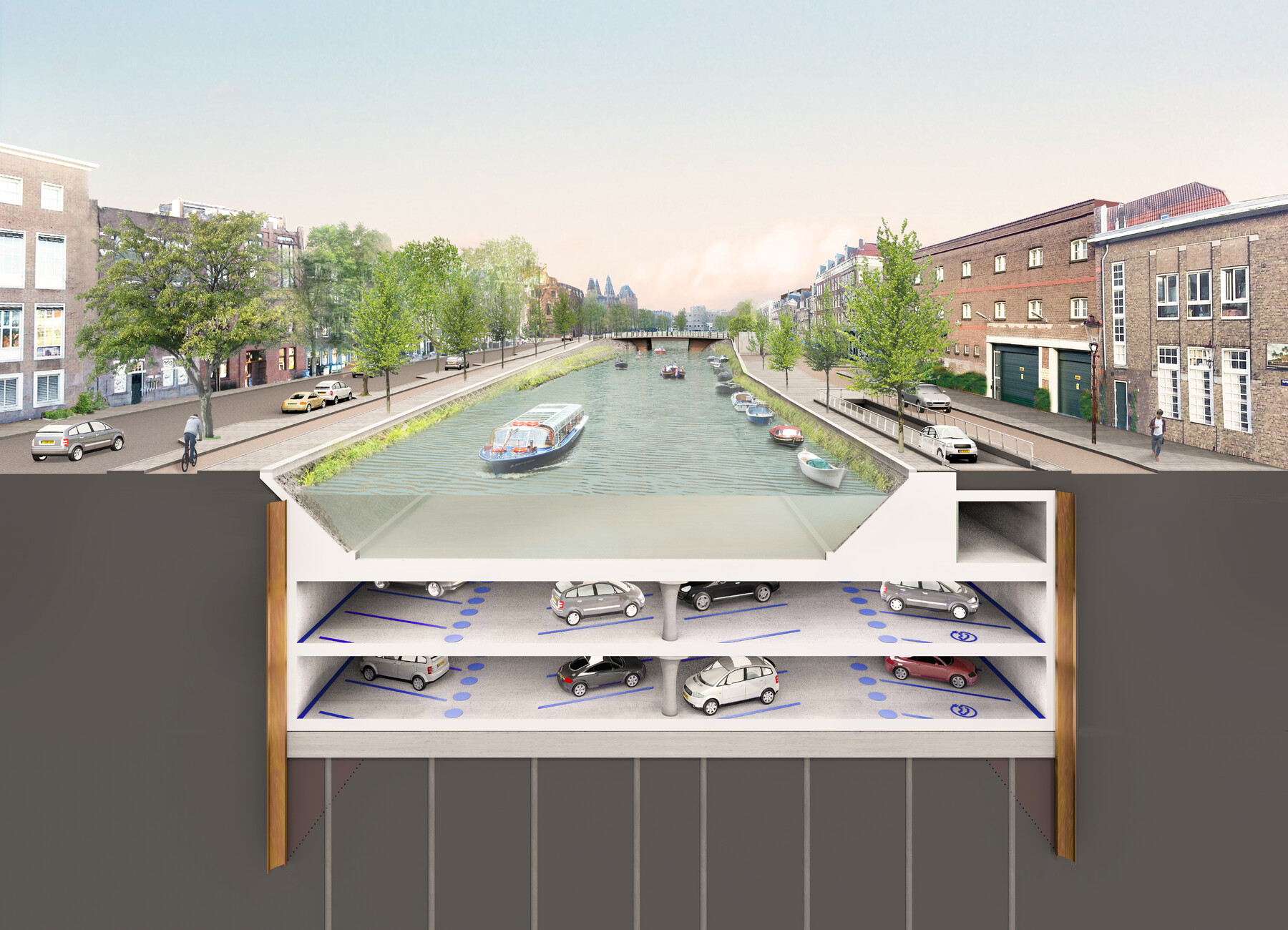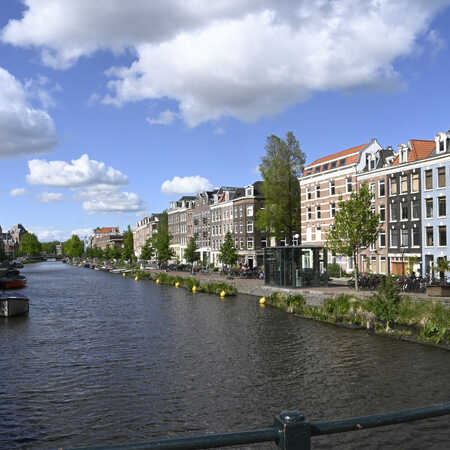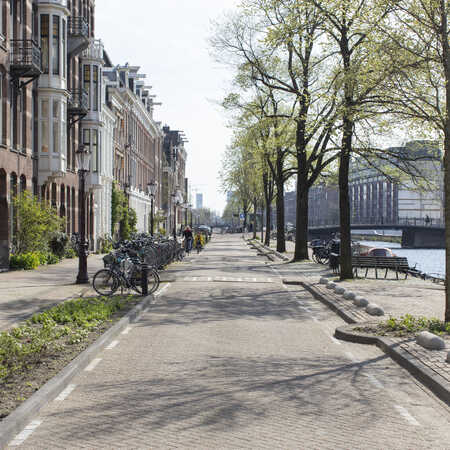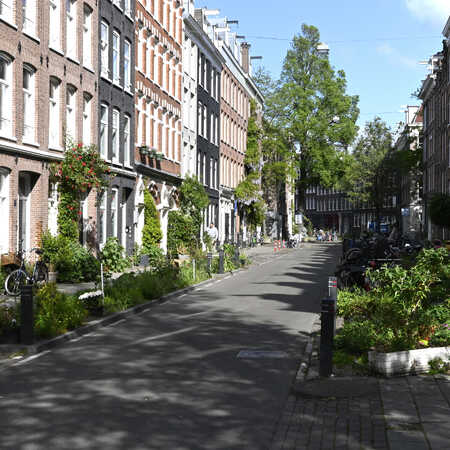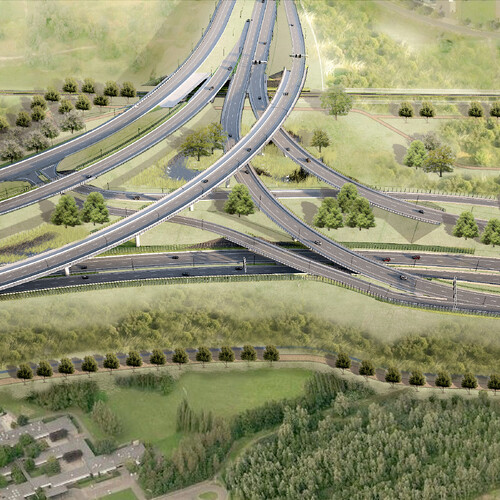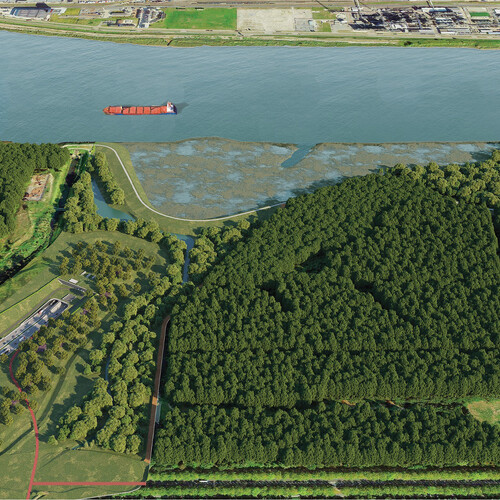Long and narrow
Sixty of the 600 parking places in the underground garage are reserved for visitors of the neighbourhood, the remaining are for residents of De Pijp who have a parking permit. Because a great number of parking places are disappearing in the neighbourhood, more space will become available for planting, squares and playing areas. The garage will also provide parking for 60 bicycles. For pedestrians, cyclists and playing children, the neighbourhood will vastly improve.

